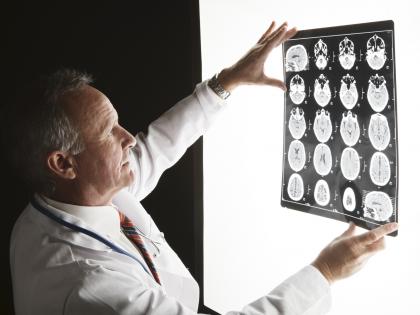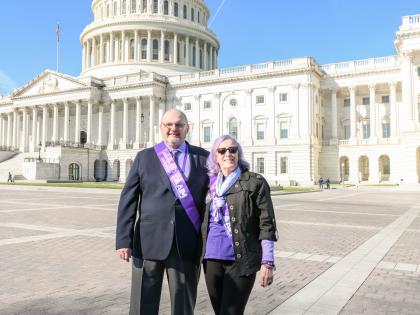Massachusetts State Alzheimer’s Plan Overview

In 2010, Governor Deval Patrick directed the Executive Office of Elder Affairs, in partnership with the Alzheimer’s Association Massachusetts/New Hampshire Chapter, to draft a state plan addressing Alzheimer’s disease within the state. In response, these two agencies convened an Advisory Committee that included families and individuals impacted by the disease as well as representatives from state and local health and human services agencies, councils on aging, academia, public safety agencies, and professional caregiver associations. Gathering public input, the Advisory Committee published the Massachusetts Alzheimer’s Disease and Related Disorders State Plan in February 2012. Following 2018 legislation (Chapter 220 of the Acts of 2018), a new State Alzheimer’s Plan was released in April 2021.
Massachusetts 2026 Policy Priorities

Support a Dementia-Capable State Infrastructure
Over 135,000 individuals in Massachusetts are living with Alzheimer’s, and 218,000 are caring for them. To strengthen Massachusetts’s capability to support individuals living with dementia and their caregivers, a robust state government response is needed. Establishing a full-time Dementia Services Coordinator position at the Executive Office of Health and Human Services dedicated to supporting dementia initiatives across the state can mitigate the growing impact of the disease. The Alzheimer’s Association is also urging state lawmakers to prioritize the collection and publication of dementia-specific data, require dementia-specific training for all first responders, and improve required plans for safe discharges from acute care hospitals for all individuals living with dementia.

Improve Access to Biomarker Testing
With the historic Food and Drug Administration (FDA) approval of treatments that slow the progression of Alzheimer’s in the early stages, early detection and diagnosis are even more critical to ensure individuals receive the most benefit at the earliest point possible. Biomarkers offer one of the most promising paths to improve dementia detection, diagnosis and treatment. Yet these critical tests remain out of reach for many as insurance coverage is failing to keep pace with innovations and advancements in treatments. The Alzheimer’s Association is urging state lawmakers to expand insurance coverage of comprehensive biomarker testing. Without this legislation, dementia diagnoses may take up to two years, increasing the long-term costs to the individual, family and the state.

Improve Quality of Home Care Through Dementia Training
People living with Alzheimer’s and other dementia face unique health care needs. Home care aides, however, often do not have sufficient knowledge on dementia to effectively support those living with dementia. The Alzheimer’s Association is calling on state lawmakers to require annual dementia-specific training and competency for all staff employed by home care agencies in Massachusetts. Training may include topics such as person-centered care, dementia-related behaviors and effective communication strategies for communicating with a person living with dementia that can improve the quality of care.
Massachusetts State Advocacy Day
Be part of the movement to create change at the Massachusetts State House! Hear directly from legislative champions, advocates and experts on Alzheimer’s — then take action by meeting with your legislators, connecting with fellow advocates and sharing your story about how Alzheimer’s or other dementias have impacted your life. Your voice can shape policy and make an impact.
Sign Up to Learn About Advocacy Opportunities in Massachusetts

Find My Chapter
Together, we’re making an impact. Find an Alzheimer’s Association chapter in your community for more ways to engage.
Contact Us
State Affairs Contact: Chelsea Gordon
Phone: 617.393.2075
Email: cgordon@alz.org
135,200
people living with Alzheimer’s in Massachusetts
218,000
Bay Staters are providing unpaid care
$2.2 Billion
Medicaid cost of caring for people living with Alzheimer’s (2025)
1,596
deaths from Alzheimer’s in 2022
23%
in hospice with a primary diagnosis of dementia
283
number of geriatricians in Massachusetts in 2021
Resources to Drive Change in Massachusetts
The following resources developed by AIM and the Alzheimer’s Association will help you learn more about the issues impacting people living with Alzheimer’s and their caregivers, how Massachusetts policymakers are addressing these gaps, and how you can help drive change.